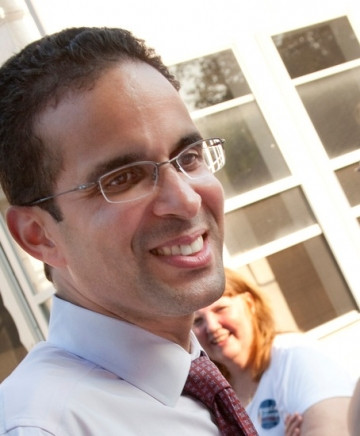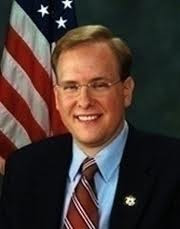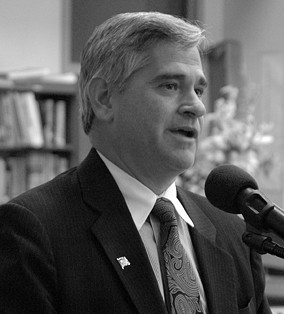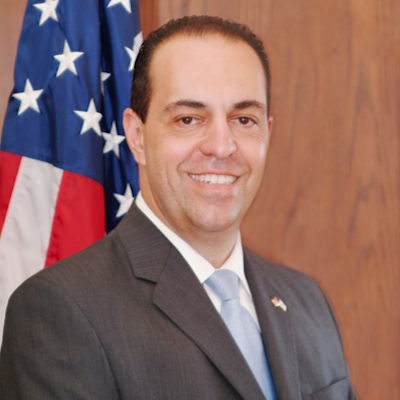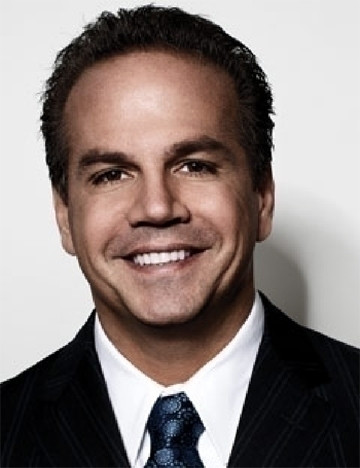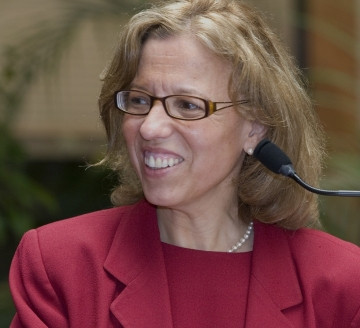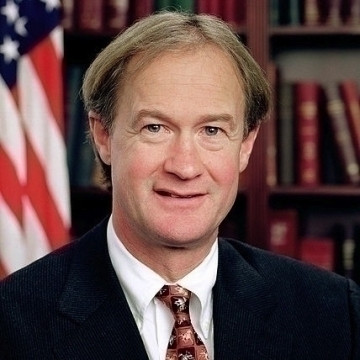Russell Moore: City Council Pays Are Too Low
Monday, August 11, 2014
The crowd who believes we should "run government like it's a business" can be rather ironic.
To a large extent, they're onto something. Government should leverage economies of scale, employ economic incentives, and meet budget and time deadlines effectively--just like the private sector.
But the minute that government starts acting like a business in ways they dislike, like compensating their government officials fairly, the "run government like a business crowd" parts company with the tenants of their philosophy.
GET THE LATEST BREAKING NEWS HERE -- SIGN UP FOR GOLOCAL FREE DAILY EBLASTRather predictable
That was my sentiment when I saw the reactions to Stephen Beale's excellent investigative story last week about city and town council pay and benefits.
It was rather predictable. People in the comments section and on social media, for the most part, thought that city and town officials were overpaid for their positions.
At first blush, that reaction seems to make some logical sense. After all, people should do part-time public service for free and out of the good of their hearts, the reasoning goes.
Get what we pay for
While that sounds good and may be idealistically sound, the truth is that's not the best way to get the most value out of government. Like anything else, people respond to incentives, and if you incentivize people to do something, like public service, you're going to get more talented people coming forward to offer their services.
There's an old saying that seems to be a general truth in that it's usually, if not universally, true: pay peanuts and get monkeys. Who can argue with the assertion that we've got some under-qualified people in government?
I understand the sentiments of people who believe that all public service should be done for free. But how many people, particularly quality workers, are willing to expend their valuable time and energy away from their friends and families for free or a pittance?
Cost vs. Value
Just about everyone has some idea or notion of what their time is worth and folks will usually not expend their time or energy working unless they feel as if they're time is being compensated for fairly.
In the same light, it is easy for people to overlook their duties and not take them seriously when they're not being adequately compensated.
If I have heard it once, I have heard it 100 times in my days as a news reporter working for The Warwick Beacon. I'd ask business leaders or other intelligent, well-intentioned citizens with excellent private or non-profit experience why they didn't run for city council and I'd get the same response again and again. They'd tell me that while they'd like to help the community, they simply didn't have the time to spend working such long, hard hours on the council for such little compensation.
Take the City of Warwick for example, which was singled out as having the largest compensation for city council members when pension, health care, and salary were taken into account. Council members are paid $10,000 per year, and receive health care if they need it. The council memebrs are also eligible for a pension if they serve for three terms.
Board of Directors
That might sound like a quite a bit of money, and admittedly, the bill can become costly if a person receives all those benefits. At the same time, people need to keep in mind that the city council is essentially the board of directors of an entity responsible for a $300 million budget.
What corporation with a $300 million budget would pay their board of directors a salary of just $10,000 per year? None that I know of.
In the same respect, it makes no sense that mayors of Rhode Islands largest cities and towns make just $100,000 per year to run what would amount to large corporations if they were businesses. If those people were paid, let's say, $500,000 per year, for instance, the quality of individuals running for office would improve dramatically and we'd get better government and save money in the long run.
Good businesses know that often times, you've got to spend money to make money.
I agree with Monique Chartier, a spokeswoman for the Rhode Island Taxpayers, a self-appointed group that supposedly advocates on behalf of taxpayers, who said that the benefit packages should be scrapped, and city and town council members should be paid a single stipend.
Spend money to make it
"A stipend to council members is probably reasonable, on a sliding scale by size as larger municipalities involve more responsibilities and commitment of time. We cross the line, however, with health care and retirement," said Chartier.
I presume I would disagree with her just on what that number should be.
If we want government to run more like a business, and I think it should to a large extent, then Rhode Island and its cities and towns should consider paying its top executives more money.
A native Rhode Islander, Russell J. Moore is a graduate of Providence College and St. Raphael Academy. He worked as a news reporter for 7 years (2004-2010), 5 of which with The Warwick Beacon, focusing on government. He continues to keep a close eye on the inner workings of Rhode Islands state and local governments.
Related Slideshow: Rhode Island’s Most and Least Popular Politicians
The statewide poll conducted by the Taubman Center for Public Policy at Brown University in October 2013 is the latest public opinion survey by the Ivy League institution.
Related Articles
- Russell Moore: Jeff Britt vs. The Establishment
- Russell Moore: RI Interscholastic League Gouging Fans
- Russell Moore: Mattiello was Correct Choice
- Russell Moore: The Tyranny of the One Percent
- Russell Moore: Fung’s Folly
- Russell Moore: Fox’s Departure Shouldn’t Overshadow Achievements
- Russell Moore: Can Michael Solomon be Providence’s Menino?
- Russell Moore: Raimondo, Taxpayers Win in Pension Settlement
- Russell J. Moore: Licht Admits Negligence on 38 Studios
- Russell Moore: Death by 1000 Cuts—RI Style
- Russell Moore: The RI Way—Do Business with Those You Sue
- Russell Moore: Raimondo’s Daunting Fundraising
- Russell Moore: Taveras and Cronyism
- Russell Moore: Constitutional Convention: Just Say Yes!
- Russell Moore: The Summer of Buddy
- Russell Moore: Elorza, Smiley and Double Standards
- Russell Moore: Anybody But Cianci?
- Russell Moore: Mirthless Myrth York
- Russell Moore: Mattiello Playing it Safe
- Russell Moore: Block and Fung Have GOP Problems
- Russell Moore: Master Lever is GOP’s Scapegoat
- Russell Moore: A Modest Proposal to Governor Chafee
- Russell Moore: Newport Must Embrace Paolino Plan
- Russell Moore: City Council Pays Are Too Low




